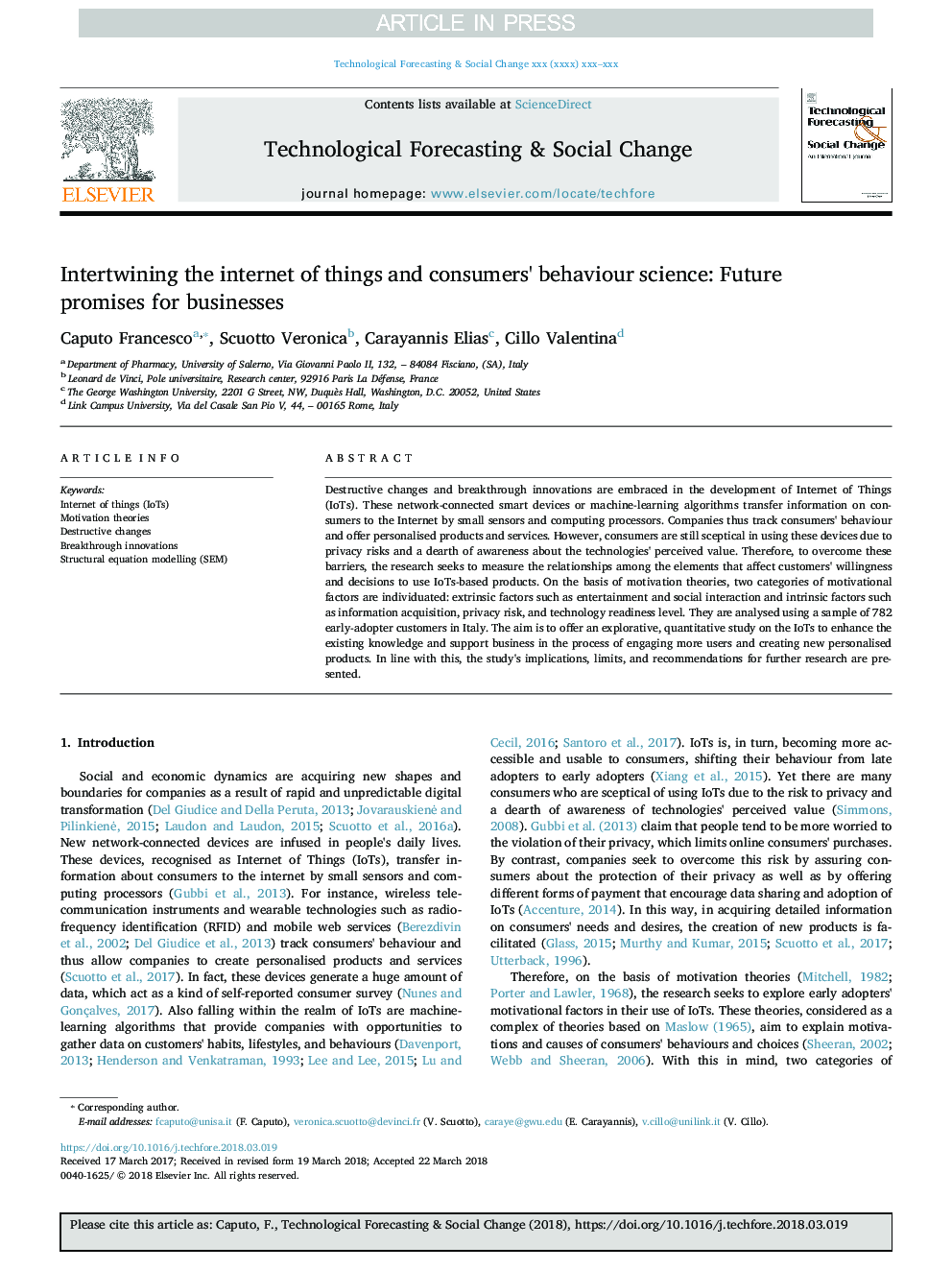| Article ID | Journal | Published Year | Pages | File Type |
|---|---|---|---|---|
| 13404505 | Technological Forecasting and Social Change | 2018 | 8 Pages |
Abstract
Destructive changes and breakthrough innovations are embraced in the development of Internet of Things (IoTs). These network-connected smart devices or machine-learning algorithms transfer information on consumers to the Internet by small sensors and computing processors. Companies thus track consumers' behaviour and offer personalised products and services. However, consumers are still sceptical in using these devices due to privacy risks and a dearth of awareness about the technologies' perceived value. Therefore, to overcome these barriers, the research seeks to measure the relationships among the elements that affect customers' willingness and decisions to use IoTs-based products. On the basis of motivation theories, two categories of motivational factors are individuated: extrinsic factors such as entertainment and social interaction and intrinsic factors such as information acquisition, privacy risk, and technology readiness level. They are analysed using a sample of 782 early-adopter customers in Italy. The aim is to offer an explorative, quantitative study on the IoTs to enhance the existing knowledge and support business in the process of engaging more users and creating new personalised products. In line with this, the study's implications, limits, and recommendations for further research are presented.
Keywords
Related Topics
Social Sciences and Humanities
Business, Management and Accounting
Business and International Management
Authors
Caputo Francesco, Scuotto Veronica, Carayannis Elias, Cillo Valentina,
